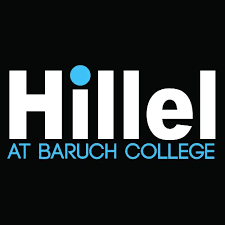Established in 1944, the club focuses on providing students with a home away from home among other services. “Hillel is a national organization and a lot of different schools have Hillel on their campuses.
It’s basically a center for Jewish life. A lot of Jewish students already know about Hillel but we try to partner with a lot of different clubs every semester and have some really cool events,” President of Hillel Larry Likhtenstein explained.
The popularity of this club in some part is owed to the Hillel organization as a whole, which has spread its roots far and wide.
“We connect with students at more than 550 colleges and universities across North America and around the world,” the Hillel website reports.
As members of Baruch’s chapter of Hillel explained, despite it being a Jewish culture club, its club room and events are welcome to anyone interested in joining.
“I’m not Jewish and I hang out here all the time” said Sam Abrole, a senior and member of the United Sikh Association club.
Vice President of Marketing Yehuda Wexler said that this, in part, comes from the club’s founding. Wexler gave some history on the man the organization is named after, Hillel the Elder.
“He was a rabbi 2000 years ago who was known for accepting everyone. Hillel is all about: come in because everybody’s welcome, Jewish or non-Jewish.”
Hillel has partnered with various Baruch clubs for job fairs, inter-faith panels, alumni networking, learning programs and even annual trips to Israel.
“We give our students the opportunity to travel and we have some learning fellowships to provide students with the space to do that,” Likhtenstein said.
The club also hosts social events such as when the club partnered up with the Organization of Soviet Students to teach students how to play Durak, a traditional Russian card game.
The club is committed to feeding students and providing Orthodox students with kosher food options to help tackle food insecurity within the Baruch community.
“Food insecurity is a big problem within CUNY, especially Baruch, so we have free food at all of our events and everyday here because we know that a lot of our students can’t really afford their own lunch,” explained Likhtenstein.
Besides food, Hillel also offers tea, access to their kosher microwaves and their guitars, t-shirts and even meetings with counselors.
“Even though we are in the beginning of the semester we know it could be stressful to adapt so we have a social worker that comes in three times a week and you can schedule coffee meetings with her. We also have stress balls,” Hillel’s Gal Elimelech said.
Musical jam sessions are also part of the Hillel culture. Togetherness is emphasized through the quality time everyone spends with each other. In a commuter school like Baruch, students seek a place where they can feel welcomed by others and escape from the hustle and stress that the city brings.
“Hillel gives me a space to be, hang out, make friends and a place to belong,” Likhtenstein said.








